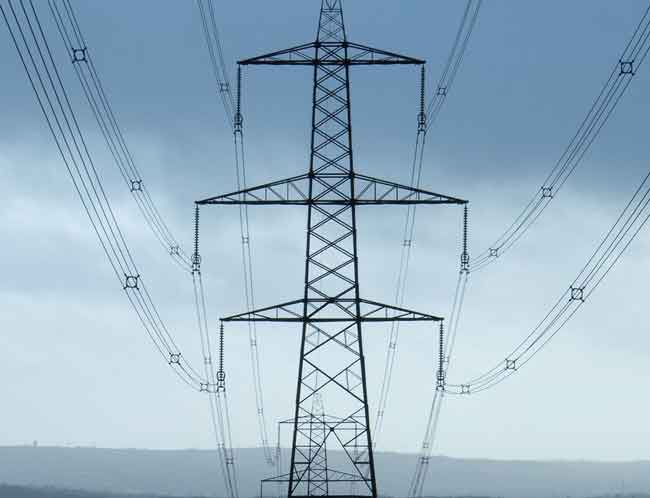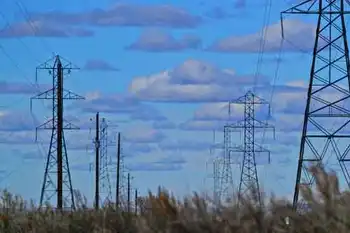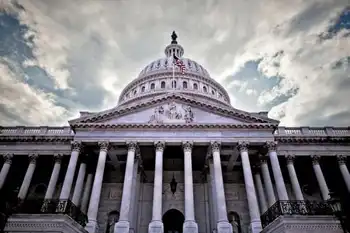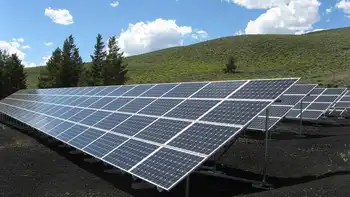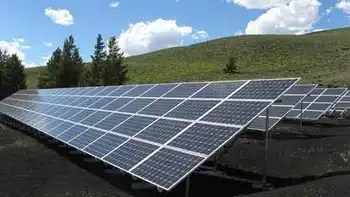Biden's Announcement of a 100% Tariff on Chinese-Made Electric Vehicles
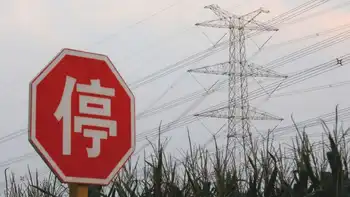
NFPA 70b Training - Electrical Maintenance
Our customized live online or in‑person group training can be delivered to your staff at your location.

- Live Online
- 12 hours Instructor-led
- Group Training Available
U.S. 100% Tariff on Chinese EVs aims to protect domestic manufacturing, counter subsidies, and reshape the EV market, but could raise prices, disrupt supply chains, invite retaliation, and complicate climate policy and trade relations.
Key Points
A 100% import duty on Chinese EVs to boost U.S. manufacturing, counter subsidies, and address supply chain risks.
✅ Protects domestic EV manufacturing and jobs
✅ Counters alleged subsidies and IP concerns
✅ May raise prices, limit choice, trigger retaliation
President Joe Biden's administration recently made headlines with its announcement of a 100% tariff on Chinese electric vehicles (EVs), marking a significant escalation in trade tensions between the two economic powerhouses. The decision, framed as a measure to protect American industries and promote domestic manufacturing, has sparked debates over its potential impact on the EV market, global supply chains, and bilateral relations between the United States and China.
The imposition of a 100% tariff on Chinese-made EVs reflects the Biden administration's broader efforts to revitalize the American automotive industry and promote the transition to electric vehicles as part of its climate agenda and tighter EPA emissions rules that could accelerate adoption. By imposing tariffs on imported EVs, particularly those from China, the administration aims to incentivize domestic production and create jobs in the growing green economy, and to secure critical EV metals through allied supply efforts. Additionally, the tariff is seen as a response to concerns about unfair trade practices, including intellectual property theft and market distortions, allegedly perpetuated by Chinese companies.
However, the announcement has triggered a range of reactions from various stakeholders, with both proponents and critics offering contrasting perspectives on the potential consequences of such a policy. Proponents argue that the tariff will help level the playing field for American automakers, who face stiff competition from Chinese companies benefiting from government subsidies and lower production costs. They contend that promoting domestic manufacturing of EVs will not only create high-quality jobs but also enhance national security by reducing dependence on foreign supply chains at a time when an EV inflection point is approaching.
On the other hand, critics warn that the 100% tariff on Chinese-made EVs could have unintended consequences, including higher prices for consumers, as seen in the UK EV prices and Brexit debate, disruptions to global supply chains, and retaliatory measures from China. Chinese EV manufacturers, such as NIO, BYD, and XPeng, have been gaining momentum in the global market, offering competitive products at relatively affordable prices. The tariff could limit consumer choice at a time when U.S. EV market share dipped in Q1 2024, potentially slowing the adoption of electric vehicles and undermining efforts to combat climate change and reduce greenhouse gas emissions.
Moreover, the tariff announcement comes at a sensitive time for U.S.-China relations, which have been strained by various issues, including trade disputes, human rights concerns, and geopolitical tensions. The imposition of tariffs on Chinese-made EVs could further exacerbate bilateral tensions, potentially leading to retaliatory measures from China and escalating trade frictions. As the world's two largest economies, the United States and China have significant economic interdependencies, and any escalation in trade tensions could have far-reaching implications for global trade and economic stability.
In response to the Biden administration's announcement, Chinese officials have expressed concerns and called for dialogue to resolve trade disputes through negotiation and mutual cooperation. China has also emphasized its commitment to fair trade practices and compliance with international rules and regulations governing trade.
Moving forward, the Biden administration faces the challenge of balancing its domestic priorities with the need to maintain constructive engagement with China and other trading partners, even as EV charging networks scale under its electrification push. While promoting domestic manufacturing and protecting American industries are legitimate policy goals, achieving them without disrupting global trade and undermining diplomatic relations requires careful deliberation and strategic foresight.
In conclusion, President Biden's announcement of a 100% tariff on Chinese-made electric vehicles reflects his administration's commitment to revitalizing American industries and promoting domestic manufacturing. However, the decision has raised concerns about its potential impact on the EV market, global supply chains, and U.S.-China relations. As policymakers navigate these complexities, finding a balance between protecting domestic interests and fostering international cooperation will be crucial to achieving sustainable economic growth and addressing global challenges such as climate change.





